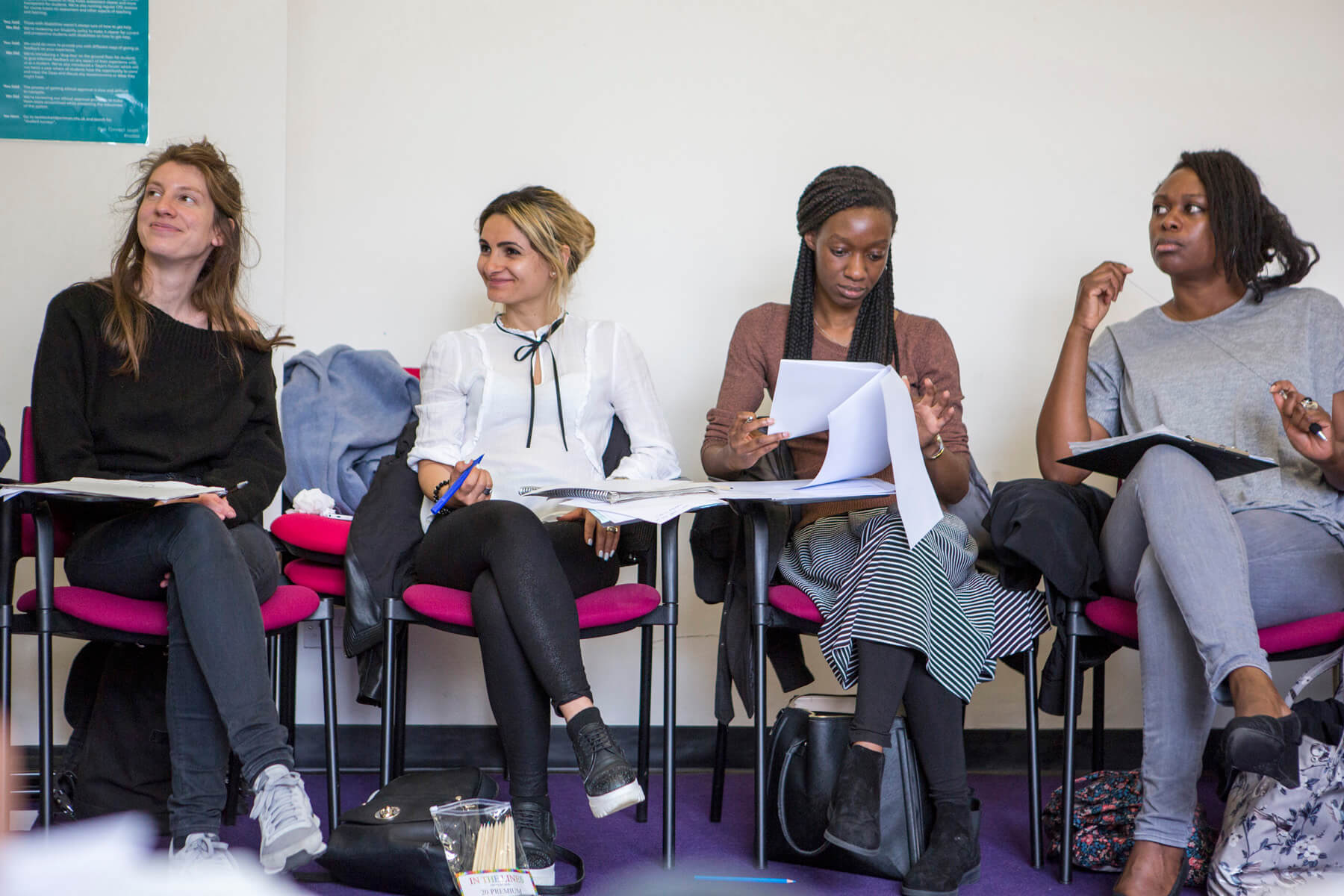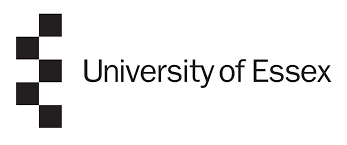
Consulting and Leading in Organisations: Psychodynamic and Systemic Approaches (D10/ED10)
Understand organisational systems and acquire the skills to work more effectively as a leader, consultant or manager
This two-year course will develop you as a leader, consultant or manager by giving you a fuller understanding of the human dimensions of organisational systems, including unconscious group processes, and helping you to develop a ‘consultative stance’ to organisational dilemmas and opportunities. You will be helped to see the bigger picture, from different perspectives, and acquire the skills to work more effectively.
This course is available to study in-person (D10) or online (ED10). Both modalities of the course are managed and taught as a single, integrated programme. Each offers the opportunity to study live what is required and what emerges when working in the mixed economies of in-person and online work relations.
About this course
This course combines experiential learning with the study of psychoanalytic and systemic theory in relation to organisations, bringing into view the complex emotional lives of contemporary organisations. You will learn how to track the flow of pressure around organisational systems, noting how pressure may move up and down hierarchies, or flow out into certain departments, roles or professions, or into ‘troublesome individuals’.
Theory seminars and webinars will introduce you to key concepts such as the individual unconscious, the group unconscious and the institutional unconscious. Contemporary papers and case studies will bring theory to life, exploring issues such as authority and power, organisational change and the politics of difference.
Race, intersectionality and difference are approached using a theoretical, individual and organisational lens, in order to explore how these dynamics of difference may impact on organisational dynamics, and on the capacity of leaders, managers and consultants to take up their roles.
A range of conceptual tools will develop your capacity to think critically and systemically about organisations. You will learn to map organisational systems and understand the effects of organisational structure on organisational dynamics and vice versa. You will be encouraged to think creatively ‘across the boundary’ between the conscious and unconscious aspects of organisational life, including those of the organisational system in which the course takes place.
Course structure
In the first year of the course, you will observe an organisation which will provide you with an invaluable opportunity to watch a group’s functioning when it is engaged in its usual task.
In your second year, you will undertake a consultancy, supervised in small supervision groups. You will also be expected to organise yourselves to plan and staff a consultancy intervention for year one students. The focus will be not only on the success or failure of this intervention but on the opportunity provided for learning about group processes that emerge when engaging with a client group.
Over the two years, you will participate in experiential groups, the aim of which is to learn how to observe the functioning of a group and to understand the dynamics which influence it, while also participating as a member in that group. Experiential groups allow for the study of issues such as authority, power, leadership, followership, rivalry, boundaries, group defences and cultural and role differences.
Group Relations Conference
Between years one and two, all students take part in a group relations conference which is an intensive and immersive experience of group and institutional processes. The conference is, in effect, a temporary organisation created to enable you to study relatedness and relationships within and between groups, boundary dynamics and issues of delegated authority.
If you choose the online version of this course, you must attend an in-person Group Relations Conference – preferably joining your peers from the in-person modality (D10) at the autumn Group Relations conference at the Tavistock Centre in London. Please note that you will be responsible for any travel and accommodation costs associated with the conference.
If you are unable to attend this conference, you may choose from an approved list of alternative conferences and will be refunded the equivalent of the Tavistock and Portman’s internal Group Relations Conference fee, charged to courses where this is a mandatory requirement.
Modules
Module 1: Theory 1
- Year one
- FHEQ level 7
- 20 credits
- Compulsory module
- Module lead: Robert Fitzpatrick
Module aims
The aims of the module are to:
- provide an historical, developmental and cumulative introduction to psychoanalytic perspectives on the organisation, together with historical papers on the origins of systems thinking about organisations
- provide an overview of research methods, through the academic and professional skills seminars, and explore strategies of academic writing and presentation, as well as ethical issues in working with and within organisations
Module Assessment
You must submit a 3,000 word essay.
Module 2: Consulting and Leading in Practice 1
- Year one
- FHEQ level 7
- 20 credits
- Compulsory module
- Module lead: Alison Wragg
Module aims
The aims of the module are to:
- offer an introduction to applying psychoanalytic and systemic thinking to organisations
- provide you with a range of conceptual tools with which to study the leadership and management of organisations
- explore key ideas from systemic thinking, group relations and psychoanalysis.
- develop the capacity to think critically and systematically about an organisation, to formulate working hypotheses, and to design appropriate interventions
- encourage you to think creatively ‘across the boundary’ between the conscious and unconscious aspects of organisational life
- provide the opportunity for you– whether in a leadership role or in the role of consultant – to study and develop the necessary practical skills involved in taking up a ‘consultative stance’
- develop the ability to listen to others, whether clients, employees, or other organisational members to elicit and assess the meaning of communications in their various forms, to recognise conscious and unconscious processes and dynamics, to formulate and test hypotheses about what is going on, to communicate these appropriately and to enable oneself and others to understand more about their own organisational processes
- enable you to differentiate between a consultative stance and inappropriate psychotherapeutic engagement
- learn about the boundaries and limits of the approach
Module assessment
You will be assessed on your participation in seminars and a 2,000 word applications essay.
Module 3: Experiential Learning and its Applications 1
- Year one
- FHEQ level 7
- 20 credits
- Compulsory module
- Module lead: Phillip Birch
Module aims
The aims of the module are to:
- develop the capacity to learn from, and make use of, your own individual experiences towards understanding the dynamics of a group
- enable you to study and learn first-hand about the processes that influence individuals and groups when they work together
- develop the ability to observe a group while engaged in its usual activities, making meaning from the dynamics observed and also from the emotional experience of the observer
- allow students to take up the role of observer without having to ‘consult’ to an organisation, observing in the widest sense rather than researching by studying existing documentation or asking questions of those observed
Module assessment
You must submit a 3,000 word essay.
Module 4: Group Relations Conference – Leadership in Organisations
- Year one
- 0 credits
- Compulsory module
- Module lead: Gwen Hanrahan
Module aims
The aim of this module is to provide an immersive experience of group and institutional processes, allowing you to develop further the learning about leadership and followership provided through the first year of the course.
Module assessment
The module is not assessed. However, attendance at the conference is compulsory and you must attend in order to pass the module.
Module 5: Theory 2
- Year two
- FHEQ level 7
- 20 credits
- Compulsory module
- Module lead: Robert Fitzpatrick
Module aims
This module continues to provide a historical, developmental and cumulative introduction to psychoanalytic and systemic perspectives on consulting and leading in organisations and introduces contemporary applications.
A number of leaders and consultants present their work using concepts taught on the course. Professional skills such as design of organisational interventions are developed.
Module assessment
You must submit a 3,000 word essay.
Module 6: Consulting and leading in practice 2
- Year two
- FHEQ level 7
- 20 credits
- Compulsory module
- Module lead: Alison Wragg
Module aim
The aim of this module is to develop and use consultative skills through negotiating and completing a consultation. This is conducted in person, outside of scheduled teaching time.
Module assessment
You will be assessed on your participation in seminars, and through a 2,000 word essay.
Module 7: Experiential learning and its Applications 2
- Year two
- FHEQ level 7
- 20 credits
- Compulsory module
- Module lead: Phillip Birch
Module aim
The aim of this module is to explore the conscious and unconscious processes of the group in the context of students’ experience of the course.
Module assessment
You must submit a 3,000 word essay.
Module 8: Dissertation
- Year two
- FHEQ level 7
- 60 credits
- Compulsory module
- Module lead: Gwen Hanrahan
Module aims
The aims of this module are to:
- provide an opportunity for you to integrate the learning from the theoretical and applied activities in the course, as well as demonstrating your own theoretical understanding from other sources, and capacity to appropriately utilise experiential learning as data – linking it to relevant psychoanalytic, systemic and other theory
- address questions of research methodology and support you to extend your exploration of ideas relevant to a systems psychodynamics approach
- develop multiple hypotheses arising out of the learning from the consultation undertaken in the earlier part of the course
- facilitate conducting literature searches and writing literature reviews
- support the writing of a well-structured dissertation
- foster the capacity for independent learning
Module assessment
You must complete a 14,000 word dissertation based on the action research consultancy project completed in year two of the programme
Who is this course for?
This course is for you if you are a manager, leader, consultant or coach who wants to gain insight into the unconscious processes that affect organisational systems.
The online version of the course will have a focus on virtual teams and mixed virtual and co-located in-person teams. We will examine if the unconscious at work prevails whether the work takes place in real or virtual rooms, or both.
Course details
To undertake this course, you need to:
- have a minimum of three years’ experience in your chosen profession
- have experience of direct involvement in the management, training or development of other professional workers, or engagement in consultative work for specific organisations
- have a first degree or equivalent, and/or professional experience commensurate with that qualification
Tuition fees
In-person, London version (D10)
Home (2026/27)
£8,560 per year
International (2026/27)
£17,120 per year
Online version (ED10)
£8,560 per year (2026/27)
There are no international fees for the online version.
Please note that you will be required to undertake an observation of an organisation in year one and a consultancy to an organisation in year two outside of schedule course teaching time. Students will be responsible for any costs, such as travel, associated with these activities.
Annual fee increases
Tuition fees are charged for each year of your course. If your course is longer than one year, the fees may be subject to annual inflationary increases. For more information on tuition fee changes, including paying for tuition fees, please refer to our tuition fee guidance.
Funding
Student loans
If you are studying a Master’s or Doctoral level course, you may be eligible for a postgraduate loan from the UK government. Please check our student loans guidance for eligible courses and criteria.
Funding for current students
We offer several funding options to support current students who need financial assistance during their studies. Please refer to our financial support guidance for more information.
Assessment
Over the two years of the master’s, assessment will be through four 3,000 word essays (two each year), two 2,000 essays (one each year) plus a dissertation of 14,000 words completed during the summer following year two.
There is also an element of continuous assessment provided by tutors and supervisors in the ‘Consulting and Leading in Practice’ module of the course, worth 50% of assessment for that module.
Attendance
The teaching and student webinar dates are the same for both versions of the course.
Proposed teaching dates:
| Term | Session | Dates |
|---|---|---|
| Autumn 2026 | Block 1 | 2 and 3 October 2026 |
| Autumn 2026 | Block 2 | 23 and 24 October 2026 |
| Autumn 2026 | Block 3 | 20 and 21 November 2026 |
| Autumn 2026 | Block 4 | 11 and 12 December 2026 |
| Winter 2027 | Block 5 | 15 and 16 January 2027 |
| Winter 2027 | Block 6 | 12 and 13 February 2027 |
| Winter 2027 | Block 7 | 12 and 13 March 2027 |
| Spring 2027 | Block 8 | 9 and 10 April 2027 |
| Spring 2027 | Block 9 | 7 and 8 May 2027 |
| Spring 2027 | Block 10 | 4 and 5 June 2027 |
| Spring 2027 | Block 11 | 25 and 26 June 2027 |
Student webinar dates:
- Wednesday 14 October 2026
- Wednesday 11 November 2026
- Wednesday 2 December 2026
- Wednesday 27 January 2027
- Wednesday 28 April 2027
- Wednesday 19 May 2027
- Wednesday 16 June 2027
Please note: teaching and webinar dates may be subject to change.
Group relations conference
Monday 6 to Thursday 9 September 2027
More information
Please note that specific attendance requirements vary depending on the version of the course you take.
Requirements for in-person version (D10)
The course will take place across 11 Friday and Saturday teaching blocks per year (see table above).
There will be four 75 to 90 minute seminars of group work on each day of each block, with generous breaks provided.
Friday sessions will run from 9.45am to 5pm, UK time.
Saturday sessions will run from 9.30am to 4.30pm, UK time.
In addition, during year one there will be seven one-hour, student-led webinars on Wednesday evenings, from 6.30 to 7.30pm, UK time. These webinars will be a collaboration across D10 (face-to-face) and ED10 (online) student cohort. A further four student-led webinars will take place in year two from 7.40 to 8.40pm, UK time.
In year one, there will also be three online seminars for the observation module – to be scheduled by the tutor with the seminar group between January and April. In this module, students will find and conduct an organisational observation, made up of nine, one-hour observations.
Year one students are required to attend an in-person Group Relations Conference at the Tavistock Centre, from Monday 6 September to Thursday 9 September 2027. Please note that this involves longer days, usually 9am to 7pm.
In year two, students negotiate and conduct an in-person organisational consultancy. Supervision will take place during teaching blocks, with an additional 11 mid-block supervision seminars scheduled by supervisors between January and June in the second year, at times which best suit individual supervision groups.
Requirements for online version (ED10)
The course will take place across 11 Friday and Saturday teaching blocks (see block dates in table above) and on prescheduled Wednesday evenings (32 in year one, 16 in year two).
There will be three 75 – 90 minute seminars of group work on each day of each block, with generous breaks provided.
Friday sessions will run from 11.30am to 5pm, UK time.
Saturday sessions will run from 11am to 4.30pm, UK time.
Wednesdays sessions run from 6 to 7.30pm, UK time.
Within the prescheduled Wednesday evenings, seven are dedicated to student-led webinars. These webinars will be a collaboration across the ED10 (online) an D10 (face-to-face) year one student cohort. Year one webinar take place from 6.30 to 7.30pm, UK time. There will be a further four webinars in year two, which take place from 7.40 to 8.40pm, UK time.
In year one, three of the Wednesday sessions are dedicated to the observation module seminars, and take place between January and April. In this module, students will find and conduct an in-person organisational observation, made up of nine, one-hour observations in their local area.
Year one students are required to attend an in-person Group Relations Conference, at the Tavistock Centre, from 6 to 9 September 2026. Please note that this involves longer days, usually 9am to 7pm.
In year two, students negotiate and conduct an in-person organisational consultancy in their local area. Supervision will take place during teaching blocks, with an additional 11 mid-block supervision seminars scheduled by supervisors between January and June in the second year, at times which best suit individual supervision groups.
Graduates of this course have:
- come from a variety of professional backgrounds including healthcare, retail, the finance sector, technology and software development, sports and entertainment industries, charities and social services
- learned a new approach to working within and consulting to organisations, allowing them to understand unconscious group dynamics and how organisations function as systems with managed boundaries, hierarchies of roles, necessary inputs and outputs
- developed roles within organisations where they consult to processes of change, or common difficulties such as high staff turnover, evolving marketplaces or mergers
- explored how aspects of identity such as race, gender, sexuality, class or disability shape organisational functioning
- learned skills for improving diversity and inclusion in the workplace
- taken up senior management and executive leadership roles
- become self-employed as organisational consultants
- created a strong professional network and community of practice
- become ambassadors of the Tavistock approach to leadership, consultancy and the organisation
Application support and deadlines
If you have questions about our postgraduate courses, admissions process, or the specifics of your application, you can book a one-to-one online meeting with a member of our admissions team.
There are a number of important application deadlines associated with our postgraduate courses, however we encourage you to apply as early as possible, as spaces on our courses are limited and can be competitive.
Applications for this course are expected to close on Sunday 26 July 2026.
Why study with us?
This course will give you a better understanding of yourself in a working context and a greater capacity to understand group processes that create functioning or dysfunctional organisations and team. Both modalities offer opportunity to examine the socio-technical aspects of organisational life, and group dynamics when collaborating online across time zones and cultural contexts.
It will enhance your capacity for appropriate task-related leadership and develop your ability to act effectively as a consultant, manager or leader in response to organisational issues.
If you work in an organisation that is looking for organisational consultancy using the systems-psychodynamic method then do get in touch with our team of specialist consultants at Tavistock Consulting.
Testimonials
Course facilitators
Validations and accreditations
This course is validated by the University of Essex.
Apply now
Start your application for the September 2026 cohort of this course.
Please note: you may see the D10 and ED10 courses also referred to as SCMATP001 and SCMATP001O in communications from our application system.
Recommended courses
Explore courses to help build knowledge in this area
-
 CPD certificate
CPD certificate 
Leadership, followership and mental health (DAA006)
Explore courses to study beforehand
-
 CPD certificate
CPD certificate 
Leadership and management: a systemic perspective (CPD23)
-
 CPD certificate
CPD certificate 
Understanding groups: reflective practice and work discussion (CPD44)
-
 CPD certificate
CPD certificate 
Motivational interviewing: introductory module (CPD5)
Explore courses to study next
-
 Professional doctorate
Professional doctorate 
Advanced Practice and Research: Consultation and the Organisation (D10D)
-
 Professional certificate
Professional certificate 
Executive Coaching Programme – Tavistock Consulting (ECP)
